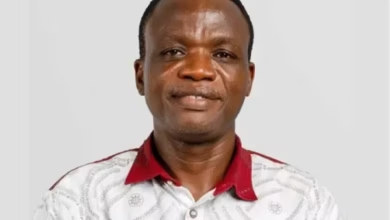State of Denial: Mahama’s Speeches Keep Selling What the Budget Can’t Buy
By Prince Dadzie (Sir-Dadzie), Financial Analyst – UK

Between 2012 and 2016, President John Dramani Mahama addressed the Ghanaian public with polished State of the Nation Addresses (SONAs), often filled with promises of growth, transformation, and social development. But a closer look revealed a persistent pattern: those speeches frequently conflicted with the hard data and fiscal realities laid bare in the national budgets presented by his Finance Ministers. The inconsistencies weren’t just propaganda, they had real implications for economic trust, public accountability, and the nation’s financial stability.
Now, in 2025, as Mahama returns to power, early signs suggest that the same troubling pattern is already re-emerging, and this time, Ghana might not bounce back as easily.
1. Growth Promises vs. Tight Realities
In nearly every SONA from 2012–2016, Mahama projected bold GDP growth targets, often 8% or higher. But budget reports consistently showed slower growth and missed targets. Inflation often ran higher than projected.
In 2025, Mahama again promises to stabilize the economy and spur growth, with the budget projecting a modest 3.1% growth. Yet he’s also pledging to honor all bond obligations, abolish key taxes, and scale up social spending. This is a risky blend, familiar from his first term, that could derail fiscal discipline if revenue disappoints.
2. Downplaying Debt While Digging Deeper
In his earlier term, Mahama publicly dismissed concerns about debt levels, even as debt soared past 70% of GDP. Today, he claims debt will be brought under control. But the 2025 budget still shows high borrowing and ambitious spending plans. With the same strategy of heavy promises front-loaded into speeches and the hope that revenues will catch up later, Ghana risks repeating its past debt.
3. Grand Promises, Light Budgets
Mahama’s speeches from both eras are packed with flashy programs: free sandals, school meals, hospitals, now joined by free tertiary education for persons with disabilities, and nationwide farming transformation. But many of these are either underfunded or lack execution detail in the actual budgets.
For instance, while the SONA promises Farmer Service Centres in every farming district, the budget plans for only 50 across the entire country. This kind of Big Talk, Little Action is what plagued earlier programs like GYEEDA and school infrastructure promises.
4. Mismatch in Deficit Messaging
Previously, Mahama used different deficit measures than his finance ministers, creating confusion over Ghana’s true fiscal health. The trend continues: in 2025, his SONA celebrates discipline while the budget admits missing 2024 targets and still plans for a 4.2% deficit.
Unless there’s clarity, and honesty, about what numbers mean, the public is once again left navigating contradictory messages and questionable bookkeeping.
5. Tax Cuts Without a Safety Net
In the 2025 budget, the Mahama administration has scrapped the E-Levy, betting tax, and other charges. That may sound like relief, but it comes as spending balloons and public debt remains high. It’s reminiscent of his earlier tenure, when rosy revenue forecasts failed to materialize, pushing Ghana back into the arms of the IMF.
Without realistic planning, these cuts may prove fiscally reckless.
Why This Needs to Be Exposed
This isn’t just about bad math, it’s about broken trust, failed programs, and a nation circling back to the same fiscal cliff it barely stepped away from a decade ago. When numbers are fudged and promises oversized, it’s ordinary Ghanaians who pay the price, through currency depreciation, rising interest rates, and broken public services.
Where was the scrutiny in 2014 when social programs were announced without funding? Where were the follow-ups when debt doubled under the weight of election-year giveaways? If Parliament, the media, and civil society don’t step up now, they’ll be complicit in the replay. Silence won’t be neutral; it’ll be national sabotage.
The hard facts are ignored for popular opinion. It’s time we brought them back into the spotlight. We need genuine governance and integrity from our leaders, not public displays and excuses.
This isn’t just political déjà vu. It’s a slow return to the conditions that crippled Ghana’s economy a decade ago.
*The question is: who’s going to stop it this time?*





